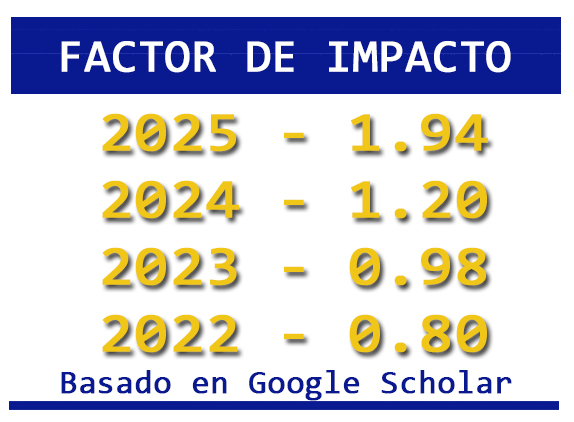A MODEL TO MANAGE KNOWLEDGE CONSIDERING THE ORGANIZATIONAL CULTURE IN SMALL COMPANIES
DOI:
https://doi.org/10.36790/epistemus.v15i30.139Keywords:
Knowledge management, organizational culture, information technologiesAbstract
The objective is to propose a model to take advantage of the organizational culture and knowledge in medium and small companies, which promote their creation and use for the benefit of the organization and make production and operation processes more efficient, as well as optimize resources such as: economic, of time, humans and knowledge. Different literatures were analyzed, obtaining key ideas to be included in the developed methodology. This has been implemented in an Industrial SME where a technological tool will be used as support, which will contain the structure to manage organizational knowledge so that it is better used and managed by the company.
Downloads
References
I. Nonaka. “A Dynamic Theory of Organizational Knowledge Creation”. Institute of Business Research. Vol. 5, pp. 14-37, Febrero,1994. https://www.jstor.org/stable/2635068
M. Segarra Cipres y J. C.Bou Lluisar. “Conceptos, tipos y dimensiones del conocimiento: configuración del conocimiento estratégico”. Revista de economía y empresa. Enero,2004.
O. Serrat .“Proposition 30 Notions of Knowledge Management”. Knowledge Solutions. Springer, Singapore. XVI, 1140, 1,2017. DOI: https://doi.org/10.1007/978-981-10-0983-9_30.
J. A. Nieto Ruiz. “Modelo de Desarrollo Sostenible para la Ciudad de Manizales, Sustentado en la Economía del Conocimiento”. Trabajo de grado maestria. Repositorio institucional, Colombia.2017. https://repositorio.unal.edu.co/handle/unal/62007.
C. E. Marulanda Echeverry, M. López Trujillo, J. Valencia Francisco. “Competencias personales y procesos de gestión del conocimiento en Pyme´s de Colombia”. Revista Virtual Universidad Católica del Norte. Vol.38 pp.158-170. Febrero , 2013.
D.Graziele Dickel y G. Luiz de Moura. “Organizational performance evaluation in intangible criteria: a model based on knowledge management and innovation management”. RAI revista de administração e inovação. Mayo, 2016. https://www.researchgate.net/publication/302875935
L. Karamitri, M. A. Talias and T. Bellali. “Knowledge management practices in healthcare settings: a systematic review”. Sustentability. Vol.12, pp. 2730. DOI: https://doi.org/10.3390/su12072730.
A. Nikpour. “The impact of organizational culture on organizational performance: The mediating role of employee’s organizational commitment”.International Journal of Organizational Leadership. Vol. 6, pp. 65-72. Noviembre, 2016. https://ijol.cikd.ca/pdf_60432_9a9a6611a397719a068702bb17be5460.html
S. Zyngier, F.Burstein Monash y J. McKay Monash. “Improving Business Performance through Knowledge Management: Governance of Knowledge Management Strategy”. Frada Burstein Monash. https://www.academia.edu/23848186/Governance_of_Knowledge_Management_Strategy_Implementation_A_New_Lens_on_an_Evolving_Practice
R.A. Quijano García, L. A. Arguelles Ma, D. E. Magaña Medina y N. Aguilar Morales. Revista Internacional Administración & Finanzas. Vol.12 (2), pp. 55-6, 2019.
C.E. Méndez Álvarez, “Elementos para la relación entre cultura organizacional y estrategia”. Universidad & Empresa, Vol.21, pp.136-169, Diciembre,2019. DOI: http://dx.doi.org/10.12804/revistas.urosario.edu.co/empresa/a.7681
C. Valmohammadi, S. Javad y K. Bahare. “How do Knowledge Management Practices Affect Sustainable Balanced Performance? Mediating Role of Innovation Practices”. CENTRUM .Vol.11(18), pp. 5129. Junio,2019. DOI: https://doi.org/10.3390/su11185129
R. A. Quijano García, L. A. Arguelles Ma, D. E. Magaña Medina y N. Aguilar Morales. Revista Internacional Administración & Finanzas. Vol. 12 (2), pp. 55-6. 2019.
L. E. Valdez, D. García Pérez de Lema, G. Maldonado Guzmán .”TIC y la gestión del conocimiento como elementos determinantes del crecimiento de la Pyme” Investigación y Ciencia. vol. 25, núm. 70, pp. 50-62, Abril, 2017. https://www.redalyc.org/articulo.oa?id=67451351007
D. Graziele Dickel y G. Luiz de Moura. “Organizational performance evaluation in intangible criteria: a model based on knowledge management and innovation management”. RAI Revista de Administração e Inovação .Julio, 2016. DOI: https://doi.org/10.1016/j.rai.2016.06.005
Y. Wei y S. Miraglia . “Organizational culture and knowledge transfer in Project-based organizations: Theorical insights from a chinise construction firm. International Journal of project management”. International journal of project management. Vol. 35 (4) pp. 571-585.Febrero. 2017 DOI: https://doi.org/10.1016/j.ijproman.2017.02.010.
D.Jiménez Sierra, A. Jiménez Sierra y P. Redondo Cala .” Management of organizational knowledge in higher education institutions: A case study”.Dialnet Vol.15(2), pp.153-162. Diciembre, 2019.
S. Leth, J. Lerche , HH. Neve, S. Wandahl. "Lecciones para la construcción: Realización de megaproyectos sobre el tiempo a través de la cultura y Hoshin Kanri ”. 27ª Conferencia Anual de la Internacional. Group for Lean Construction (IGLC), Dublín, Irlanda, págs. 1011-1022. 2019. DOI: https://doi.org/10.24928/2019/0139.
A. Perez-Soltero, V. Leal Soto, M. Barceló Valenzuela, J. A. León Duarte. “Un diagnóstico de la gestión del conocimiento en las Pyme´s del sector restaurantero para identificar áreas de mejora en sus procesos productivos”.Intangible capital. Febrero 2013. Vol. 9(1), pp. 153-183. DOI: http://dx.doi.org/10.3926/ic.381
G.S. Cristobal, A. Dialeva , N. Guyot , Re JI. “Análisis de la cultura organizacional e identificación de la necesidad de cambio cultural en empresas argentinas mediante el modelo OCAI”. Trabajo Final de Ingeniería Industrial. Facultad de Ingeniería y Ciencias Agrarias. Universidad Católica .Argentina, 2018.
M.L. Saavedra García. “La Pyme como generadora de empleo en México”. Tipología: Artículo de Investigación Científica y Tecnológica, Clio América, Vol 8(16), pp. 153-172.
Downloads
Published
How to Cite
Issue
Section
License
Copyright (c) 2021 EPISTEMUS

This work is licensed under a Creative Commons Attribution-NonCommercial-NoDerivatives 4.0 International License.
The magazine acquires the patrimonial rights of the articles only for diffusion without any purpose of profit, without diminishing the own rights of authorship.
The authors are the legitimate owners of the intellectual property rights of their respective articles, and in such quality, by sending their texts they express their desire to collaborate with the Epistemus Magazine, published biannually by the University of Sonora.
Therefore, freely, voluntarily and free of charge, once accepted the article for publication, they give their rights to the University of Sonora for the University of Sonora to edit, publish, distribute and make available through intranets, Internet or CD said work, without any limitation of form or time, as long as it is non-profit and with the express obligation to respect and mention the credit that corresponds to the authors in any use that is made of it.
It is understood that this authorization is not an assignment or transmission of any of your economic rights in favor of the said institution. The University of Sonora guarantees the right to reproduce the contribution by any means in which you are the author, subject to the credit being granted corresponding to the original publication of the contribution in Epistemus.
Unless otherwise indicated, all the contents of the electronic edition are distributed under a license for use and Creative Commons — Attribution-NonCommercial-ShareAlike 4.0 International — (CC BY-NC-SA 4.0) You can consult here the informative version and the legal text of the license. This circumstance must be expressly stated in this way when necessary.
The names and email addresses entered in this journal will be used exclusively for the purposes established in it and will not be provided to third parties or for their use for other purposes.















